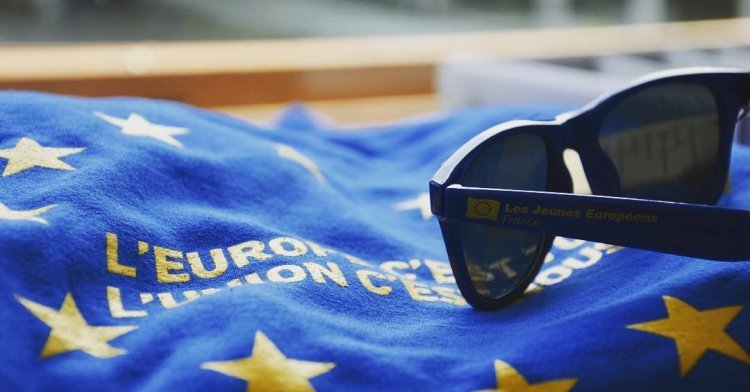First of all, the good news. The application of Serbia will usher the Balkans into the 21st century and in Europe, which could be seen as a safe haven for this part of the continent. After the bloody wars during the nineties in which Serbia played a crucial role, it’s remarkable and admirable that the country has reached political and economic maturity after the 9 years that followed the end of the Milosevic-era. Once again this shows the extraordinary radiance the EU has on its neighbours and its influential soft power which can be seen as a proof that the European integration is still a peace project.
Peace indeed, because it’s not only Serbia that has submitted its application for EU membership. Other Balkan countries have done this as well. Croatia and the Former Yugoslav Republic of Macedonia (FYROM) have already the status of candidate countries. Albania, Bosnia and Herzegovina, Montenegro and Kosovo have all signed a Stabilisation and Association Agreement with the EU and are potential candidates. Slovenia was the first Balkan country to become a member state in 2004, and has already adopted the Euro in the meantime. The European Union has thus a major reconciliatory role to play in the Balkans. This is a huge responsibility and sign of maturity for the EU as well, after it failed to intervene in the Balkan wars during the nineties. The EU failed then, but it mustn’t fail now. The perspective of an EU membership is a way to reconcile the several parties that fought in the war, and to reconcile Europe with its brutal and bloody past.
The European Union has a major reconciliatory role to play in the Balkans.
An EU membership can finally lead the Balkan countries into the wide world, away from its often local surroundings. In other words, a membership opens the Balkans to the world. New visa policy for Serbia, Montenegro and FYROM was therefore an important stage in this opening up. In Dutch there exists an expression, translated literally, ‘to live beneath the church spire’, which means that one holds too strong to its local life and traditions and doesn’t look at the world beyond. Something similarly exists in the Balkans, where history and local feuds still have much importance and can arouse major conflicts such as we could observe during the nineties. Therefore, EU membership can direct these countries to another future.
Furthermore, it would be troublesome for the EU if there remains a hole in its amidst, where frontiers still exist and where there ever looms the ghost of ancient conflicts that threaten to erupt. The EU can’t be like an ostrich and simply put its head in the ground in the hope that the problem will solve itself.
Serbia could be an interesting and important member for the EU at the international stage as well. Serbia has historical ties with Russia. It shares a common culture and religion, and has a long history of cooperation with the country. This will certainly be a great advantage for the EU, as Russia will be an ever important partner for Europe in the future.
However, many problems still linger as well. One such an issue is the remaining hostility and fragile peace that exists within and between the Balkan countries. Conflicts between Serbia and Kosovo aren’t really solved yet. Especially after the latter declared its independence in February 2008. Bosnia and Herzegovina is another case in point. A fragile peace exists between the several ethnic groups in the country, where the presidency rotates between the Serbs, Croates and Bosniaks. Moreover, there is still a High Representative for Bosnia and Herzegovina [1] who overlooks and guarantees the implementation of the Dayton Peace Agreement. If these countries would ever join the EU, this could set off huge problems were these countries to bring their grievances to the European platform and put the decision-making process into a stalemate. The fact that there still doesn’t exist a direct train connection between Sarajevo and Belgrade demonstrates this fragility. Of course, the Lisbon Treaty and the fading importance of unanimity rule will be able to avoid these kinds of events. Nevertheless, it will have to be seen whether an EU membership alone will really lead to a genuine reconciliation.
The advantage of possible better relations with Russia if Serbia joins, can also be turned around. Through a pro-Moscow proxy, Russia could exert an ever increasing influence on the European continent. However, we shouldn’t exaggerate this aspect of course. Other loyal European partners of Russia, such as Germany and Italy are probably much more important to Moscow. Yet, an ally in a traditional hostile Eastern Europe wouldn’t be a bad affair for Russia as well.
Animosity within and between Balkan states isn’t the only point of concern. In Serbia war criminals [2] are still on the loose. A fact that was important enough for The Netherlands and until recently Belgium to oppose the signing of a Stabilisation and Association Agreement with Serbia. Before any accession can take place, these war criminals must be put to trial and convicted. Only then, the Balkans will be truly able to overcome the past and end the long process of reconciliation.
Furthermore, the EU should be careful not to allow political and economic instable countries. A recurrence of situations as in Bulgaria and Romania where corruption and fraud still are huge causes for concern, must be avoided. The same applies to Greece, which is an older member state, but nonetheless struggles with similar problems.
Finally we must pose the question whether the EU is ready for further enlargement. Can it cope financially and institutionally with the accession of a group of rather poor countries – Croatia set aside. Won’t a new round of enlargement further undermine the political institutions and the decision-making process?
Whatever will be…Of course, an application is only a first step and many other potential candidates still aren’t in that position. However, it’s important to reflect on the several issues that will surface when the day comes. Turkey is a case in point. Europe can’t push forward a decision forever. The same applies for the Balkans. These countries need to join the EU sometime. It would be dangerous to leave them as some kind of ‘Balkan reservation’ surrounded by an EU and cut off from the rest of the world. Therefore this application of Serbia should be applauded as a major step in turning the page of a dark and bloody piece of current European history.


1. On 12 January 2010 at 01:35, by Kiro Velkovski Replying to: The Serbian application: Can and will Europe cope with the coming of the Balkans?
Replying to: The Serbian application: Can and will Europe cope with the coming of the Balkans?
Nice article. Small error, though - since 1991 the official name of my country is Republic of Macedonia, or Macedonia.
Regards, Kiro
2. On 12 January 2010 at 12:58, by Razvan Barbulescu Replying to: The Serbian application: Can and will Europe cope with the coming of the Balkans?
Replying to: The Serbian application: Can and will Europe cope with the coming of the Balkans?
I liked the article. I would add that bringing peace to the Balkans will be a good lesson for the EU. The same solution will then be usefull for other places on Earth were poverty creates extremists, which make war, which condemn those regions to poverty.
Follow the comments: |
|
